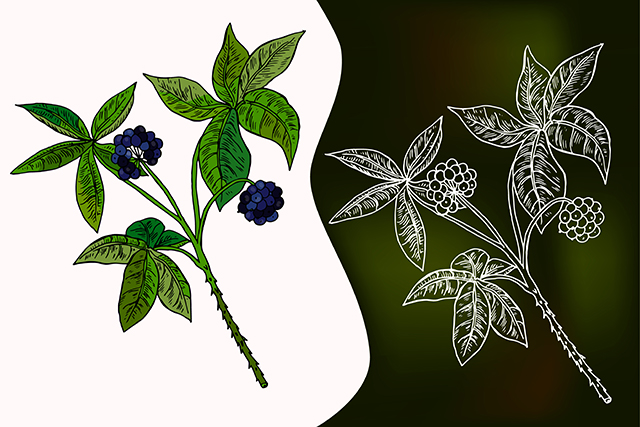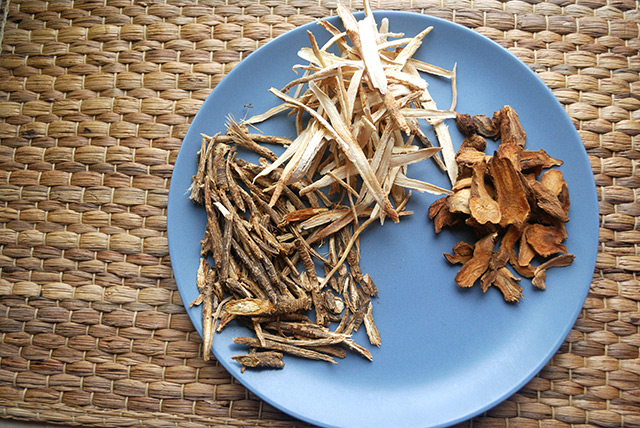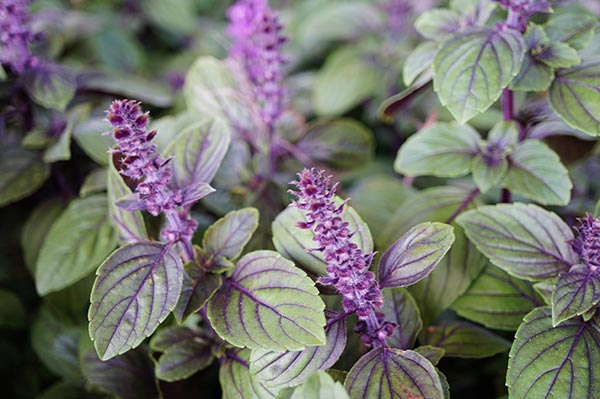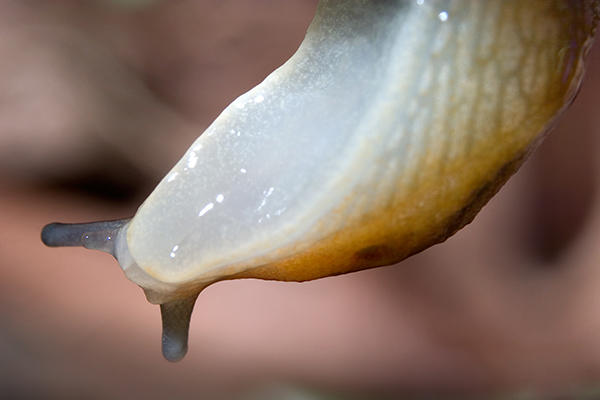The pharmacological effects and anti-cancer potential of Siberian ginseng
10/01/2019 / By Evangelyn Rodriguez

Siberian ginseng (Acanthopanax senticosus), also known as eleuthero, is a member of the Araliaceae family whose benefits and uses are similar to Asian ginseng (Panax ginseng). In traditional Chinese medicine, A. senticosus is known for its positive effects on the qi, spleen, and kidneys. Numerous research characterized the chemical components of A. senticosus and found that they possess therapeutic activities. A review written by researchers from Harbin Medical University in China discussed the recent findings on the pharmacological properties of A. senticosus. Their paper, which highlights the anti-cancer activities of the medicinal herb, was published in The American Journal of Chinese Medicine.
The many uses of Siberian ginseng
A. senticosus is a plant that is native to Japan, northern China, southeastern Russia, South Korea, and North Korea. It is used in traditional Chinese medicine as a general stimulant and an immunity enhancer. According to Chinese medicine records, the use of A. senticosus dates back some 2000 years, with the herb being prescribed to prevent respiratory tract infections, cold, and flu. In Russia, A. senticosus is known for its ability to increase performance, improve the quality of life, and decrease the rate of infections. (Related: Siberian Ginseng: The Almost Forgotten, Perfect Adaptogen and Energy Booster.)
Today, A. senticosus is used for almost the same purposes, plus a few more. For instance, Soviet Olympic athletes, Russian explorers, divers, sailors, and miners all use A. senticosus to increase their stamina and endurance and prevent stress-related health problems. A. senticosus has also proven itself as more than just an adaptogen: After the Chernobyl disaster, Russian and Ukrainian citizens took A. senticosus to counteract the effects of radiation.

|
Discover how to prevent and reverse heart disease (and other cardio related events) with this free ebook: Written by popular Natural News writer Vicki Batt, this book includes everything you need to know about preventing heart disease, reversing hypertension, and nurturing your cardiac health without medication. Learn More. |
The roots and rhizomes of A. senticosus are said to be its most medicinal parts. When taken as a supplement, A. senticosus is known for bestowing the following health benefits:
- Anti-fatigue
- Improved immune function
- Immune modulation
- Enhanced cognitive function
- Rapid wound healing
- Prevention of ulcers
- Reduced blood pressure
- Improved menopausal symptoms
- Neuroprotection
- Stabilized blood glucose levels
- Enhanced lymphatic function
Recent studies also identified some of the active components present in A. senticosus. These beneficial phytochemicals are responsible for the biological activities exhibited by the herb. Eleutherosides — phenylpropanoid and lignin glycosides found in the roots and stems of A. senticosus — give it is anti-fatigue effects. Syringin provides it with an insulinotropic effect. Triterpenoid saponins make it a great antihistamine. Coumarins like isofraxidin, on the other hand, contribute to its antioxidant, anti-inflammatory, and immunomodulatory properties. Immune polysaccharides enable it to suppress bacterial infections and inhibit tumor growth.
Siberian ginseng is a potential anti-cancer agent
A. senticosus was previously known as Eleutherococcus senticosus. It is a TCM that is widely used due to its high medicinal value. In countries like China, Korea, Japan, and Russia, A. senticosus is priced for its anti-fatigue, anti-inflammatory, adapatogenic, and anti-ulcer effects. It is also used to improve cardiovascular functions.
According to the researchers, many studies looked into the chemical and pharmacological properties of A. senticosus. Their results provided information about a large number of chemical components present in A. senticosus. However, it was only recently that researchers began focusing on the anti-cancer activities of A. senticosus both in vitro and in vivo. Today, there is mounting evidence suggesting that A. senticosus has inhibitory effects on malignant tumors, such as those caused by lung and liver cancer.
In a study published in Asian Pacific Journal of Cancer Prevention, researchers from Kunming Medical University in China demonstrated the ability of A. senticosus to inhibit the growth of different cancer cells lines, such as small cell lung cancer, cholangiocarcinoma, and colon cancer. Another study that appeared in Food Science and Biotechnology reported that A. senticosus can also be used to stimulate the immune system, enhance the cytotoxicity of natural killer cells against cancer cells, and inhibit the formation of tumor.
Based on the findings of past and recent studies, the researchers concluded that A. senticosus is an herb with a variety of therapeutic uses and the potential to be developed into an effective anti-cancer drug.
Sources include:
Tagged Under: adaptogen, alternative medicine, anti-fatigue, anti-inflammatory, anti-ulcer, anticancer, antihistamine, antioxidant, antitumor, cancer cures, disease treatments, eleuthero, endurance, energy, herbal medicine, Herbs, immune system, infection, longevity, natural cures, natural medicine, phytochemicals, prevention, remedies, research, Siberian Ginseng, stamina, stress relief, TCM, therapeutic, traditional Chinese medicine, tumor



















